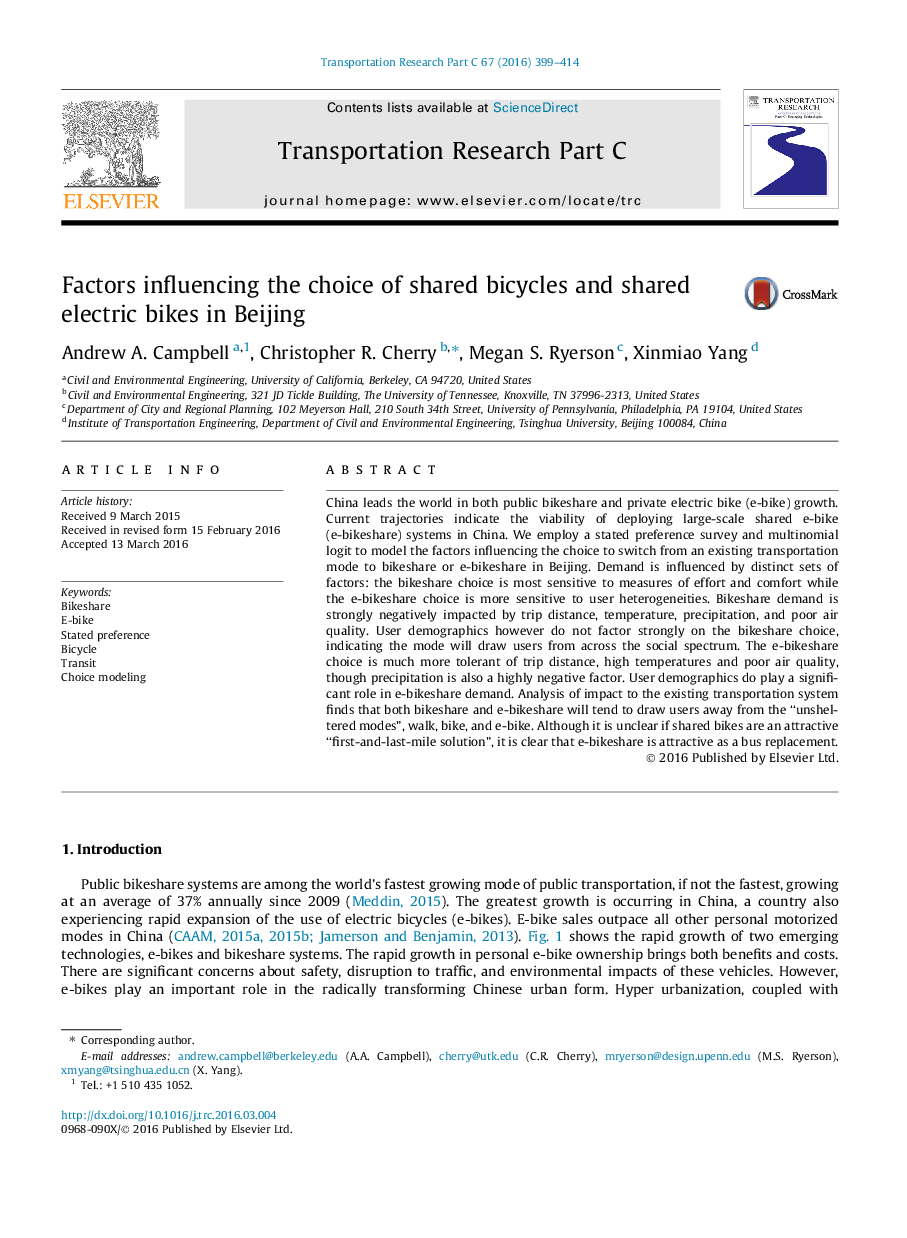| Article ID | Journal | Published Year | Pages | File Type |
|---|---|---|---|---|
| 6936462 | Transportation Research Part C: Emerging Technologies | 2016 | 16 Pages |
Abstract
China leads the world in both public bikeshare and private electric bike (e-bike) growth. Current trajectories indicate the viability of deploying large-scale shared e-bike (e-bikeshare) systems in China. We employ a stated preference survey and multinomial logit to model the factors influencing the choice to switch from an existing transportation mode to bikeshare or e-bikeshare in Beijing. Demand is influenced by distinct sets of factors: the bikeshare choice is most sensitive to measures of effort and comfort while the e-bikeshare choice is more sensitive to user heterogeneities. Bikeshare demand is strongly negatively impacted by trip distance, temperature, precipitation, and poor air quality. User demographics however do not factor strongly on the bikeshare choice, indicating the mode will draw users from across the social spectrum. The e-bikeshare choice is much more tolerant of trip distance, high temperatures and poor air quality, though precipitation is also a highly negative factor. User demographics do play a significant role in e-bikeshare demand. Analysis of impact to the existing transportation system finds that both bikeshare and e-bikeshare will tend to draw users away from the “unsheltered modes”, walk, bike, and e-bike. Although it is unclear if shared bikes are an attractive “first-and-last-mile solution”, it is clear that e-bikeshare is attractive as a bus replacement.
Related Topics
Physical Sciences and Engineering
Computer Science
Computer Science Applications
Authors
Andrew A. Campbell, Christopher R. Cherry, Megan S. Ryerson, Xinmiao Yang,
